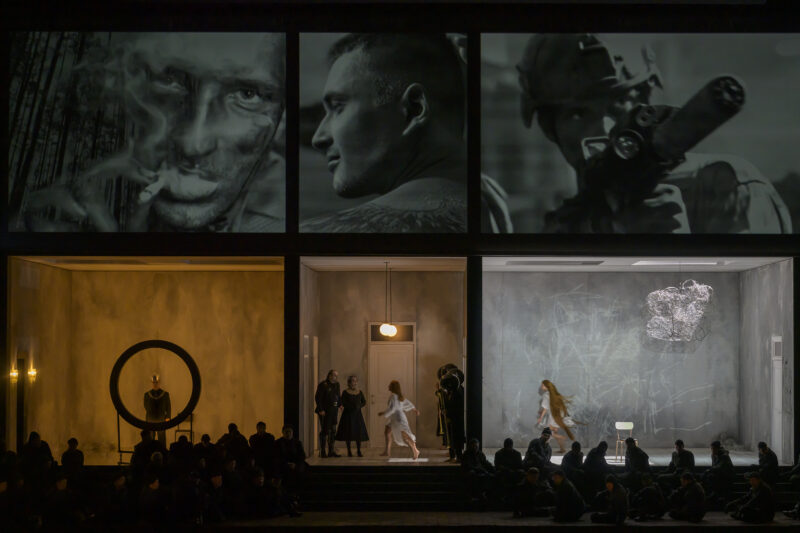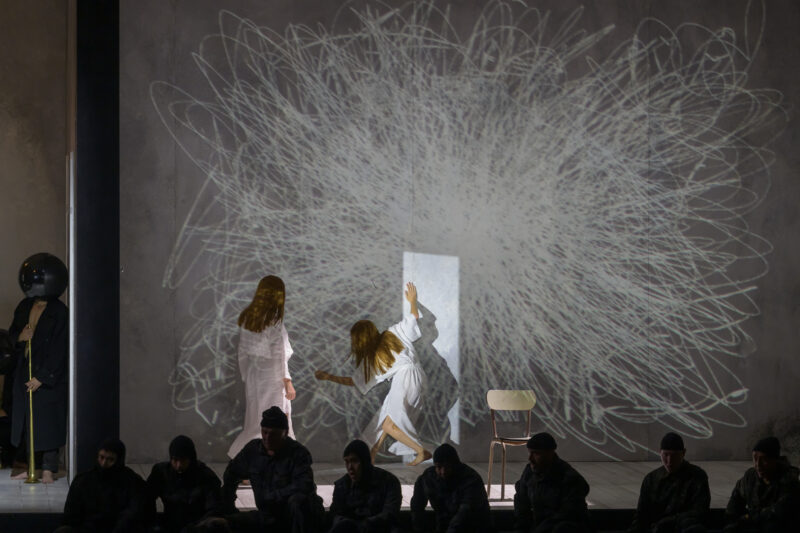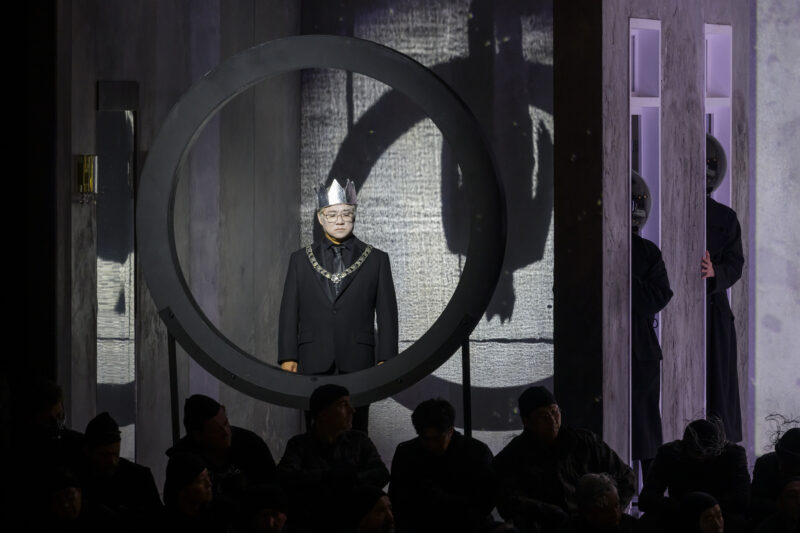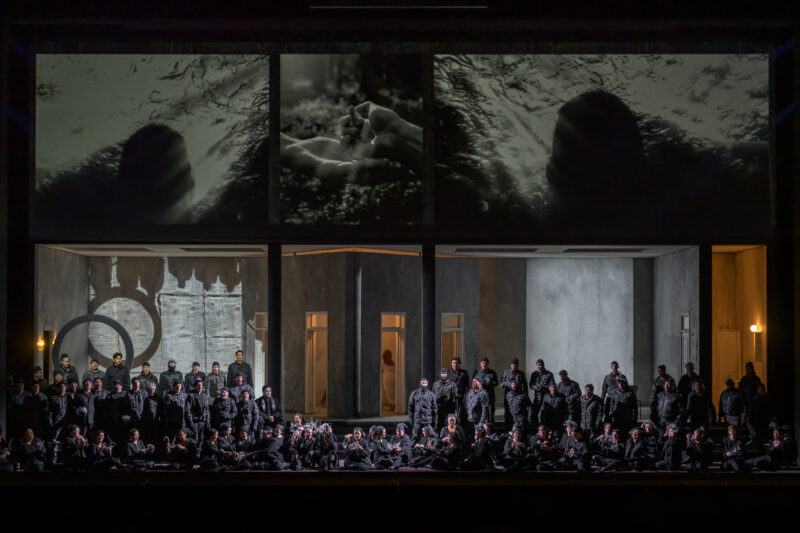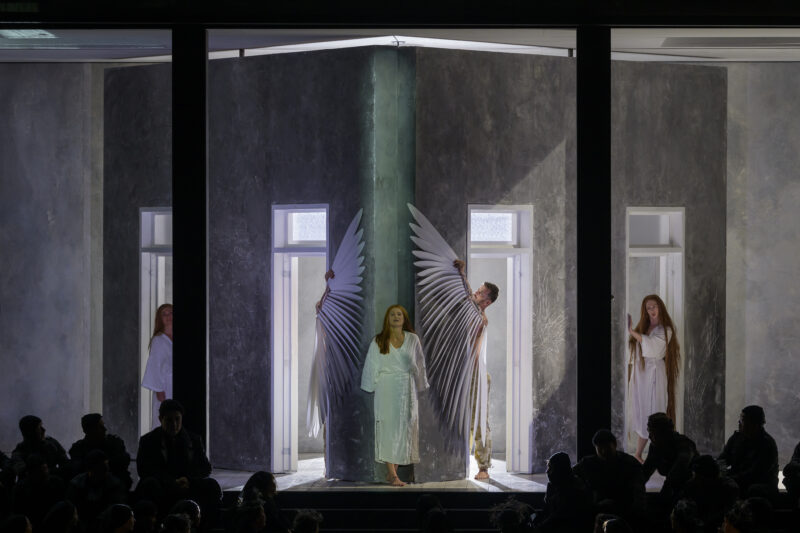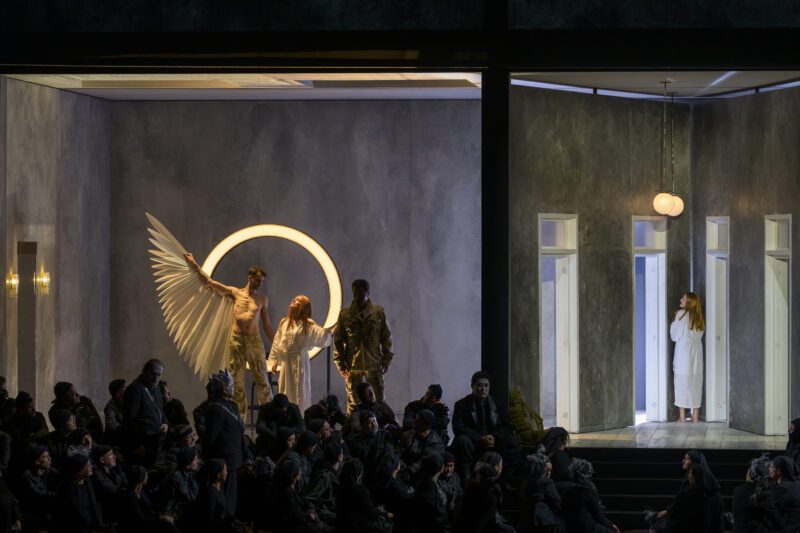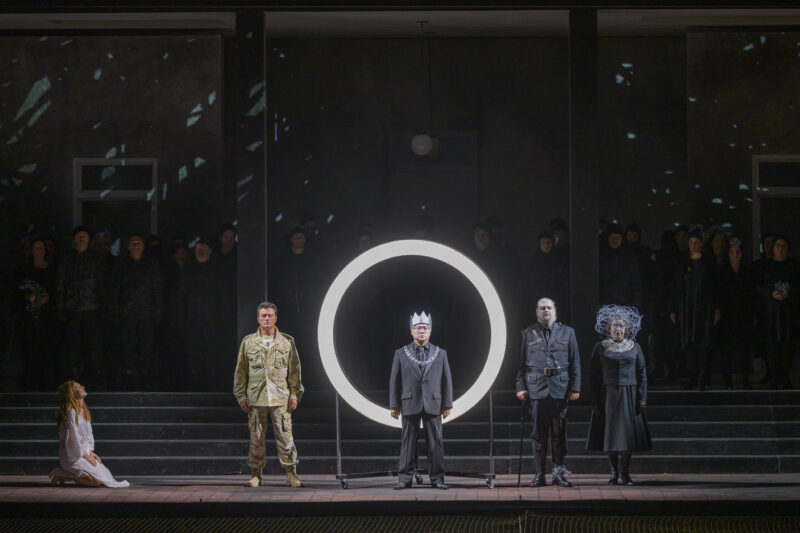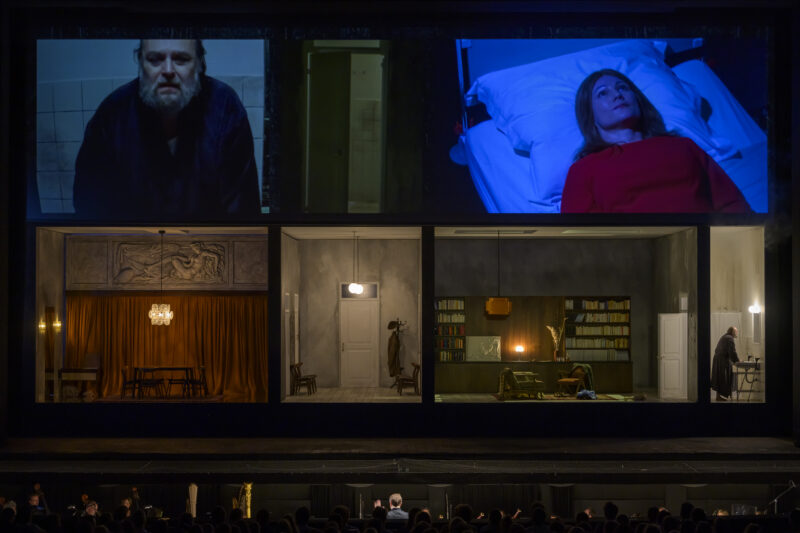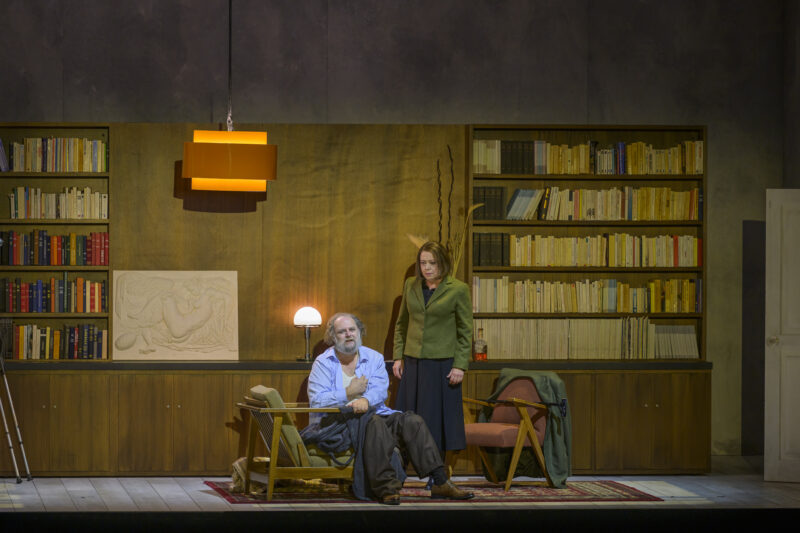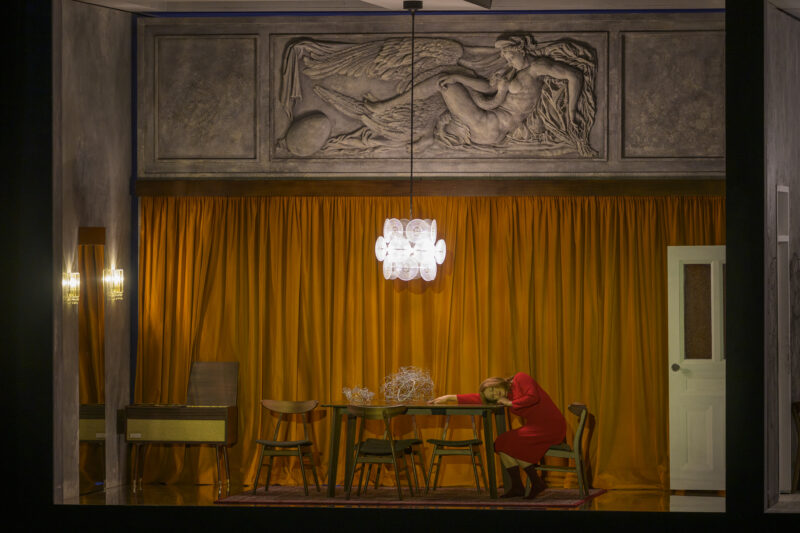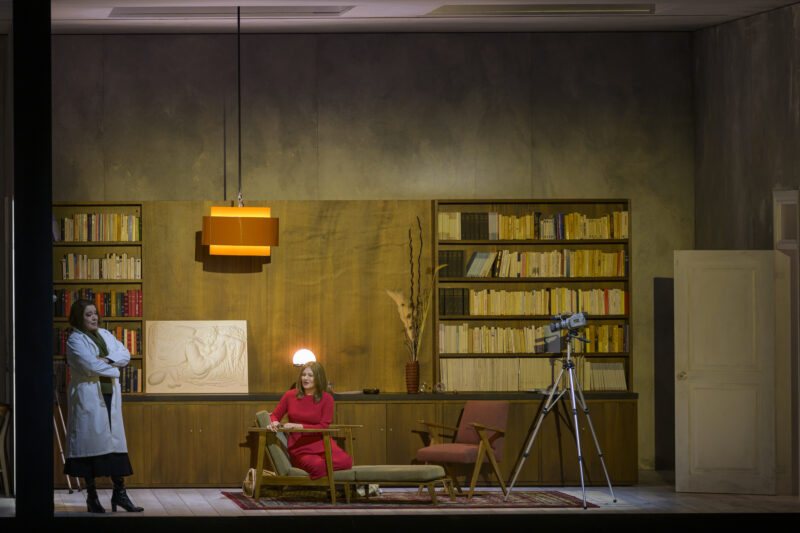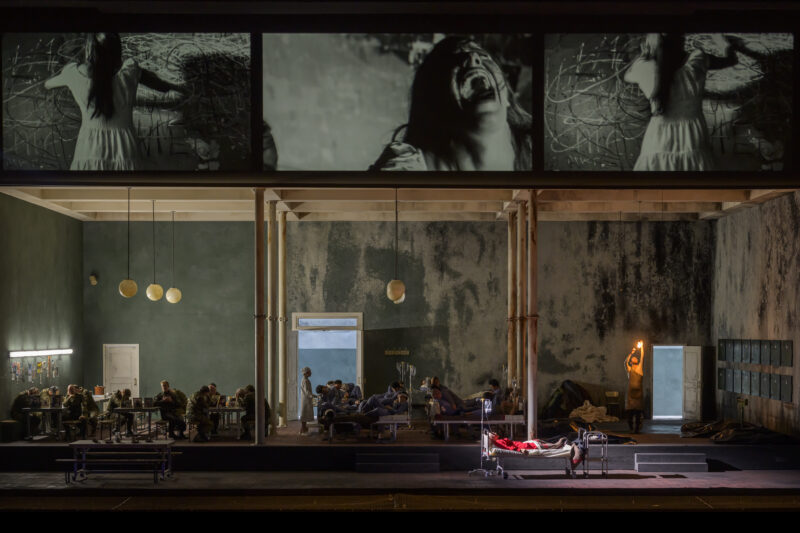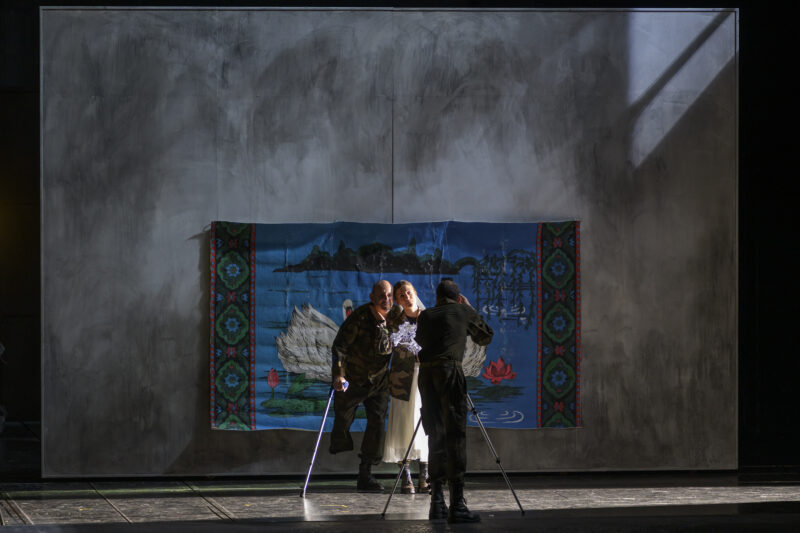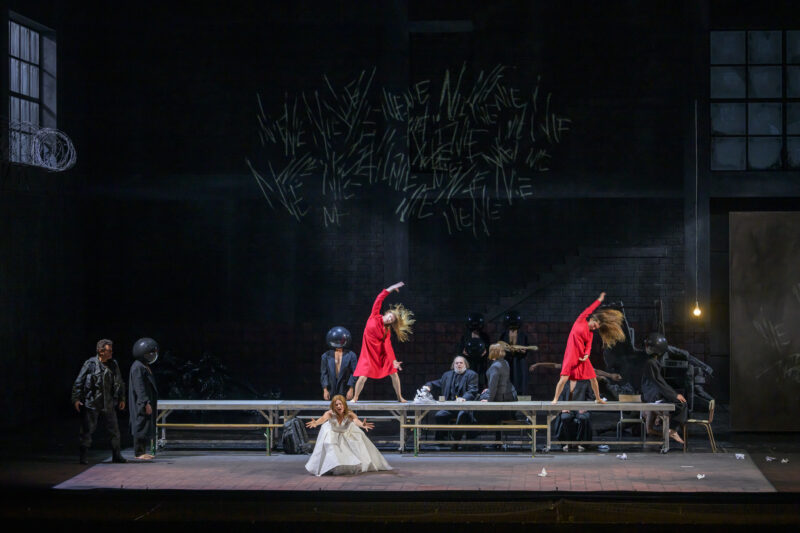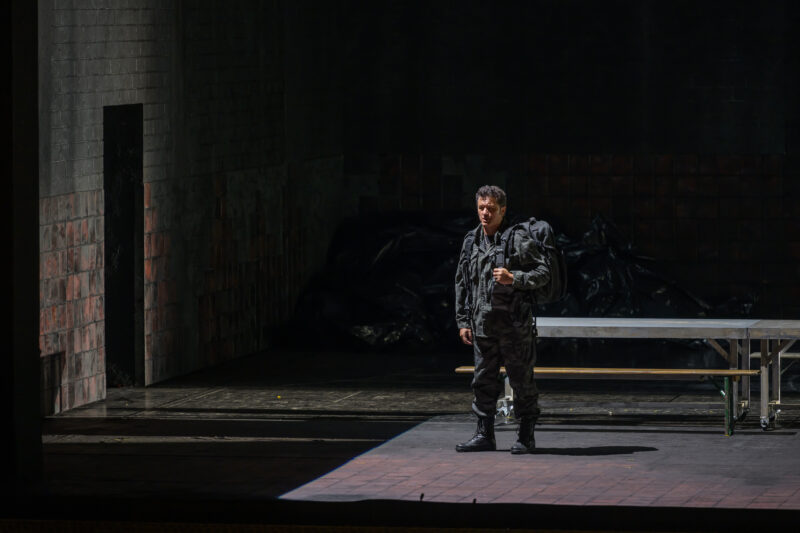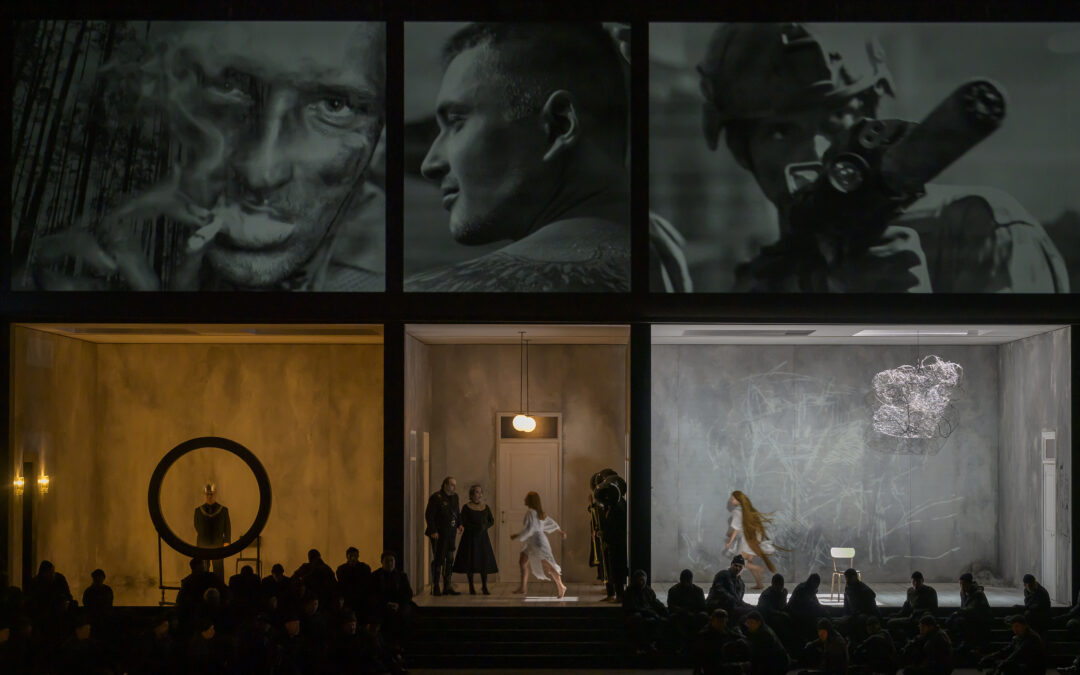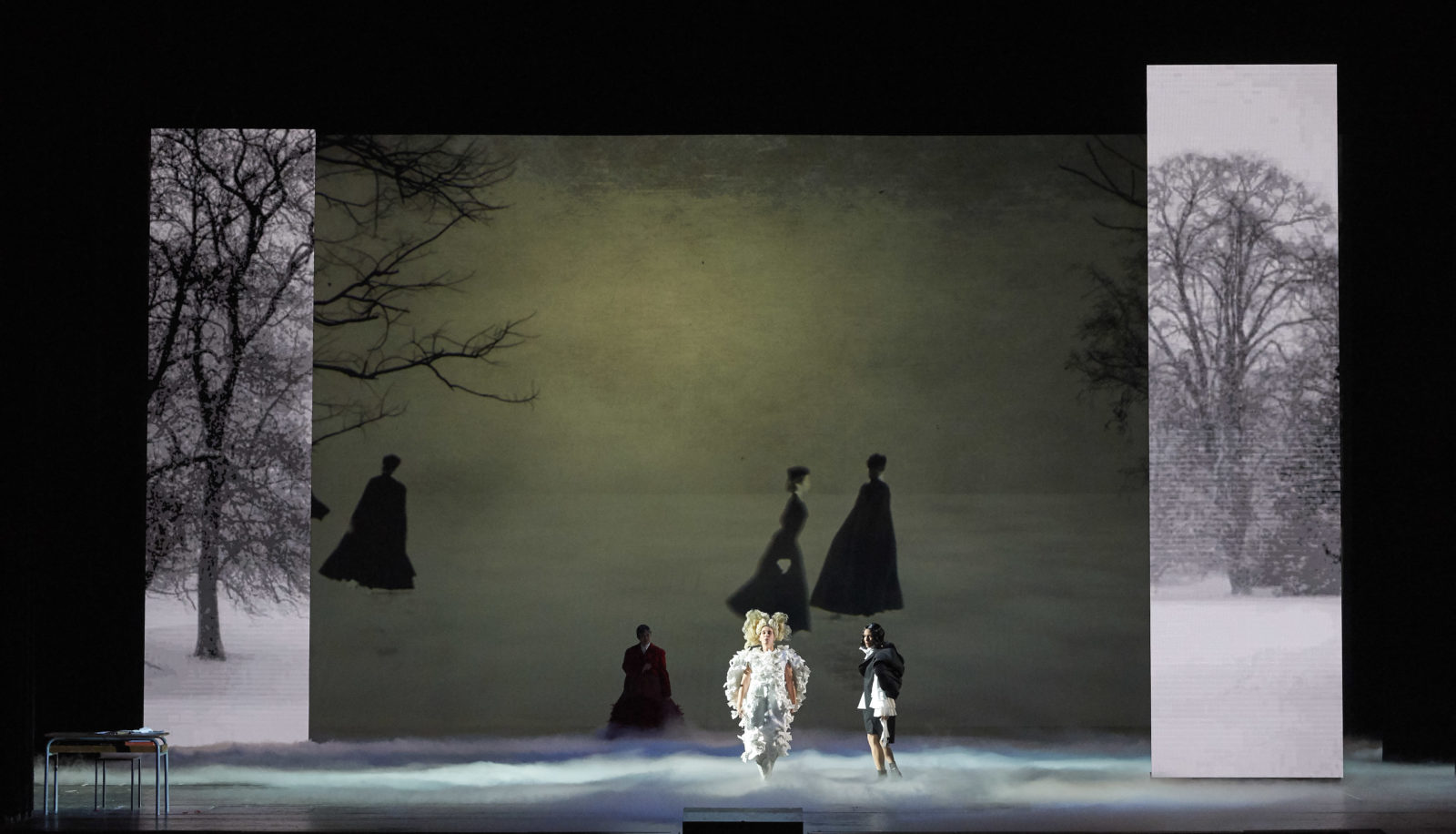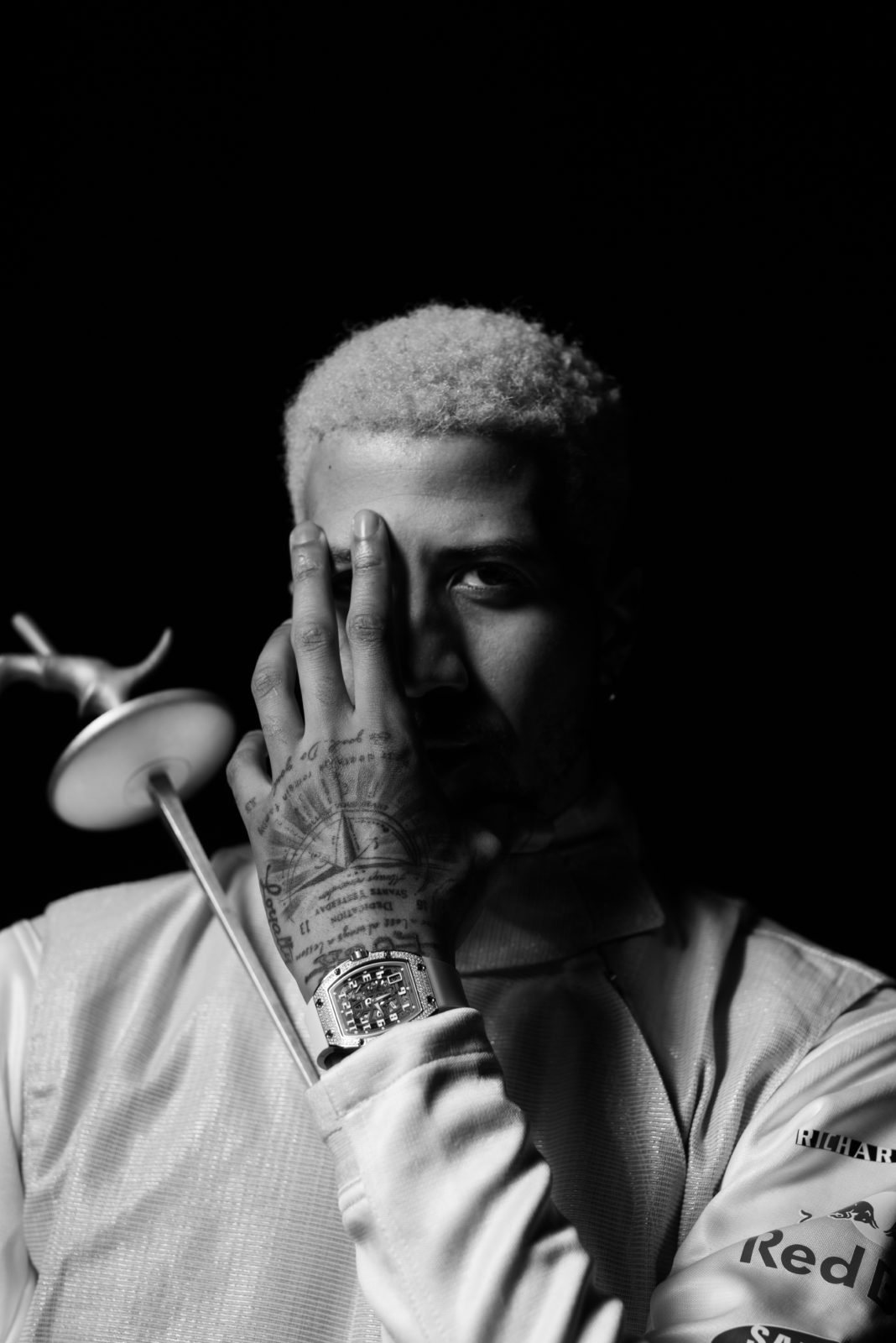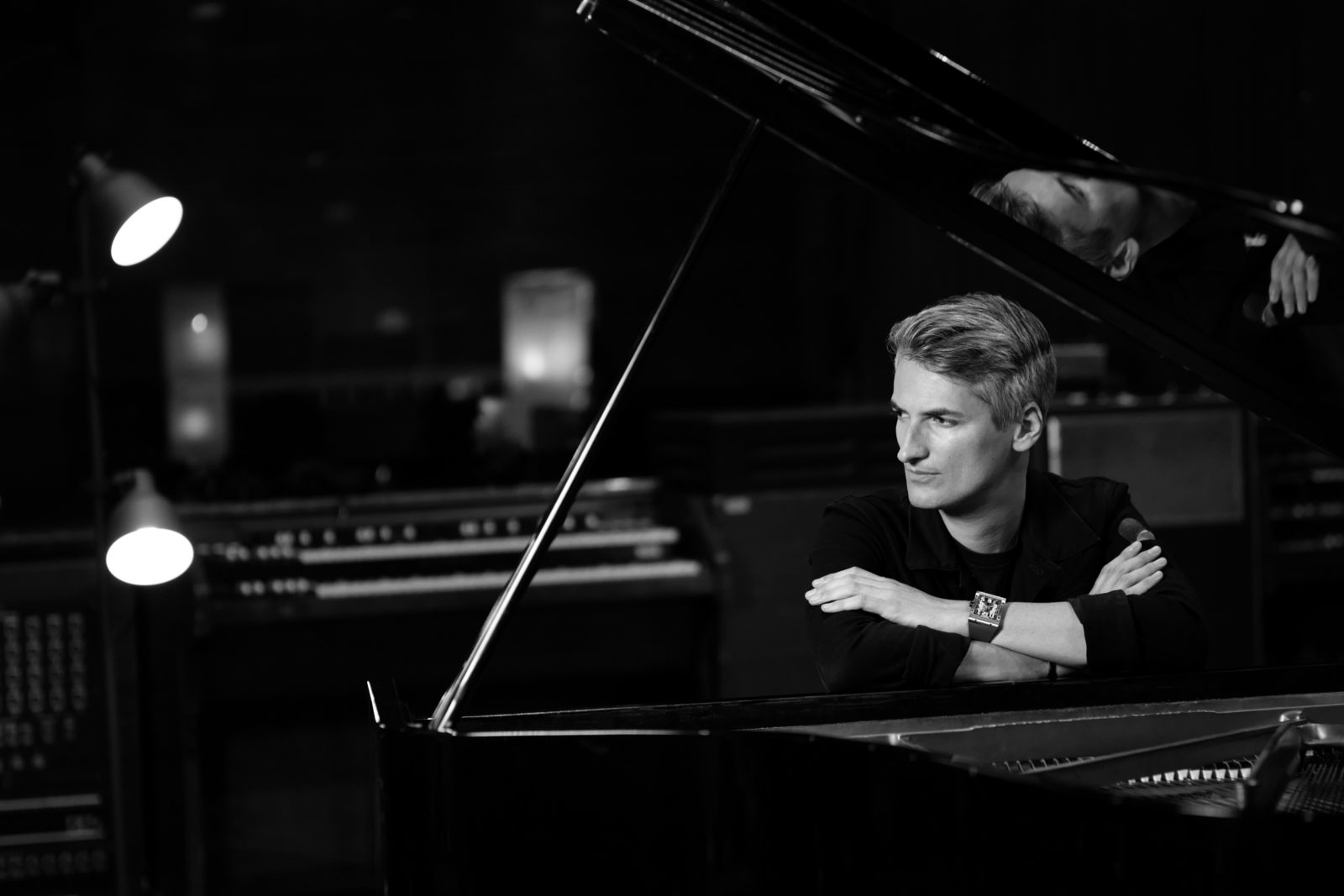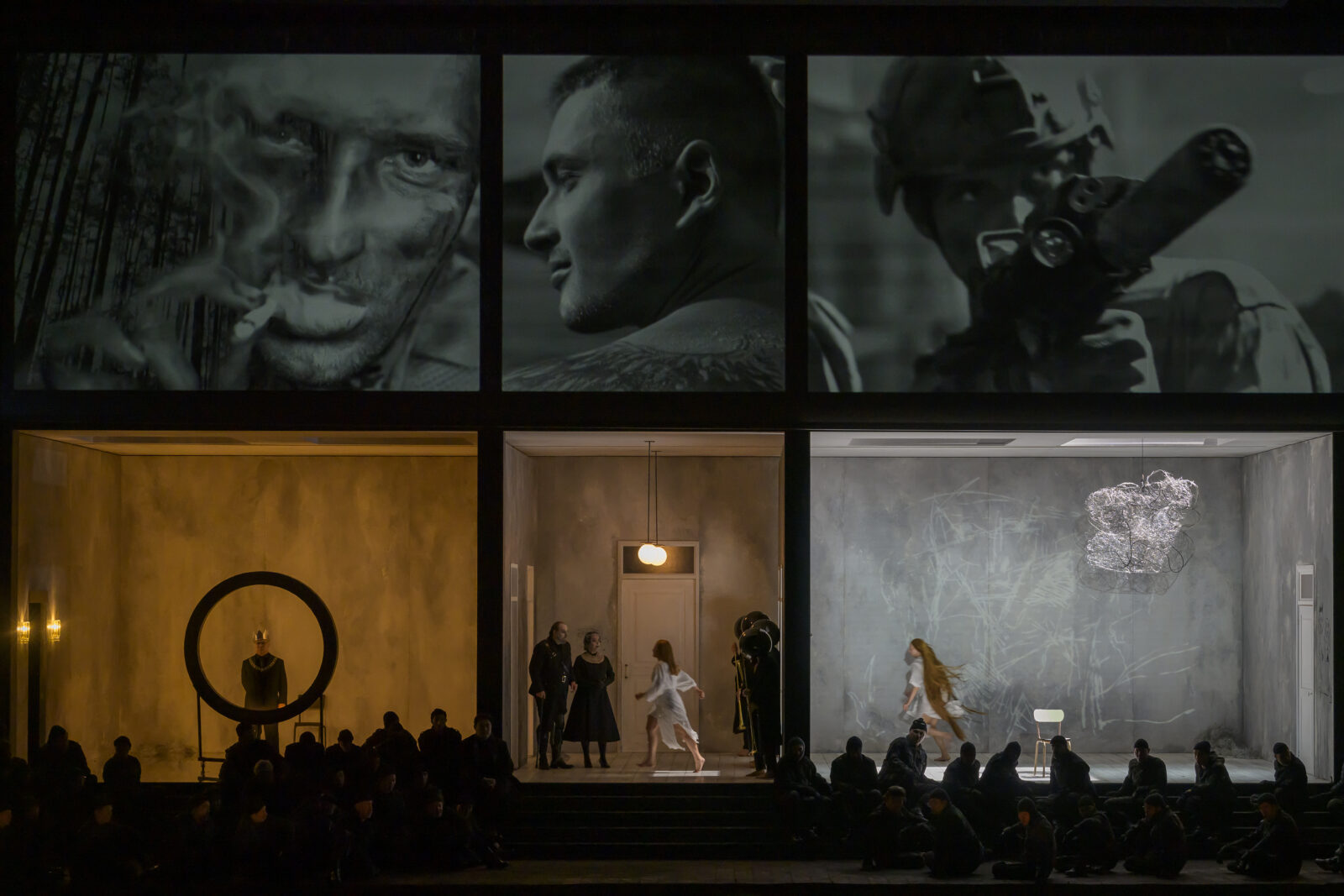
LOHENGRIN BY SEREBRENNIKOV AT OPERA BASTILLE
By Alain Berland
To understand Lohengrin in Kirill Serebrennikov’s new version at the Opéra Bastille, one must recall his film « Leto, » dedicated to the youth of Russian rock dandies. These sequences, constructed as deliberate fantasies in grainy black and white, anticipate the stylistic approach of the Russian director in turning Richard Wagner’s last romantic opera into a polyphrenic opera. Not schizophrenic in the sense of separation, but rather polyphrenic, as in the vision of the political speculative novelist Alain Damasio, who envisions a multiplicity of entities clashing in every contemporary mind.
Take, for example, Elsa, the heroine and heir to the kingdom, with a mind full of demons and chimeras, whom Kirill Serebrennikov chooses to have interpreted by three actresses who sing and dance simultaneously. It is these tensions imagined by the playwright and musician Daniil Orlov, who completely rewrote Richard Wagner’s libretto, that inspire Kirill Serebrennikov. Transposed from the court of Brabant to Elsa’s chaotic mind, then to a psychiatric hospital, and finally to the frontlines, the action is divided on the stage into cells reminiscent of the modernist grid. This allows singers, dancers, and videos to coexist in overlapping planes, all in the expressionist black and white favored by the director.
Kirill Serebrennikov uses these visions of war and baroque terror, where the knights are adorned with Daft Punk-style full helmets and the king’s podium is a giant ring light tripod like those used for selfies, to advance the plot. Elsa (soprano Johanni van Ootrum), having lost her brother in the war, is accused of fratricide by Fréderic (baritone Wolfgang Koch), manipulated by his wife Ortrud (soprano Nina Stemme) to keep her away from power. The heroine will be saved by Lohengrin (tenor Piotr Beczala), but he can only stay with her if his identity remains undisclosed, something Elsa proves incapable of doing.
From Wagner’s narrative, Kirill Serebrennikov, who now lives in exile in Berlin due to his ban in Russia, retains only the essence to highlight the horrors of war. The omnipresent themes of death and madness in the power games, portrayed by actors with flawless voices, thanks to an exceptional chorus and the perfect musical direction of Alexander Soddy, are transposed onto the stage of the Opéra Bastille. The subject matter may seem exaggerated, but it reflects the power of conflicts—both those of today, as Kirill Serebrennikov, banned in Russia, now lives in Berlin, and those of the past, considering that Lohengrin was written during a period of revolutionary passions that led Richard Wagner into exile.
Lohengrin by Richard Wagner
Directed by Kirill Serebrennikov
Opéra Bastille
September 2 to October 27, 2023
Discover more at opera.fr
